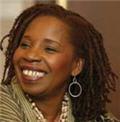-
“In the year that King Uzziah died I saw the Lord sitting upon a throne, high and lifted up; and the train of his robe filled the temple” (Isaiah 6:1).
Scholars have written about this verse. Singers have sung about it, and the general consensus is that when something great in your life dies, you can see God for who He really is. Allowing the great that we love to die so we can focus on the greatness of God is always the challenge for the Christian. And this is where I find myself on this third day of Kwanzaa, that highlights Ujima, collective work and responsibility.
For those of you who don’t know, in short, Kwanzaa is a holiday celebrating African American culture, running for seven days beginning December 26. It is rooted in the Nguzo Saba, Swahili for seven principles, one of which is focused on daily. The principles are the values that founder Maulana Karenga wants to guide the lives of African peoples.
Even before I became a Christian, I never initiated celebrating Kwanzaa though I attended friends’ gatherings. I shunned Kwanzaa because I always felt weird participating in the pouring of libation where we called on the spirit of deceased loved ones. It was always a little spooky for me. And now that I’m a Christian, my wariness goes beyond being spooked and onto the privileging of African culture above my Christian faith. Celebrate African culture, yes, but not in conflict with Christian teachings.
While Kwanzaa has strong cultural values that I appreciate, like Ujima, there are some parts, like Kujichagulia (self-determination) that are in opposition to Christian teachings. While I would love to celebrate Kwanzaa without the conflicts, you can’t separate its parts from the whole. Its parts make it whole and separating parts or mixing in Christianity would “violate the integrity of the holiday,” says Dr. Karenga. In essence, what I found is that Kwanzaa exalts blackness on the level of divinity, where you determine your destiny and, through invocation, your ancestors help you get there. This is the danger of Kwanzaa.
While I recognize the greatness of Kwanzaa—how it has given so many African Americans a sense of cultural heritage, in my life it has to die, even its marginal existence. I don’t want to miss God’s greatness because Kwanzaa or anything else is magnified in my life and obscures the glory of God, the one who gives me the identity that I need, a child of God through salvation in Jesus Christ.
Copyright 2009 by Rhonda J. Smith


